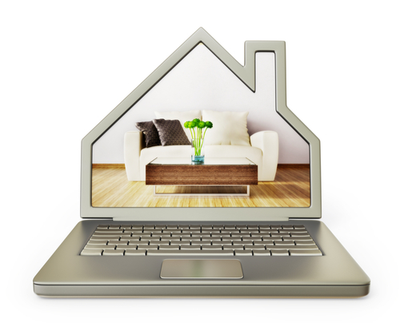The real estate market has made great efforts to adapt to the constraints of social distancing, providing virtual tools to help buyers and sellers get to the closing table. But as we look into the future, we can’t help but wonder how the events of today will affect the real estate market in the coming days. How will the coronavirus transform what homebuyers want? Let’s take a closer look.

How COVID-19 May Affect Your Next Home Purchase
Buyers may favor suburban locations
In recent years, urban centers have seen a real comeback in the real estate market. Major metropolitan areas have seen a rise in new construction and the creation of new jobs. Many buyers have been looking for homes with amenities that are within walking distance, which is much more prevalent in big cities. But with COVID-19 hitting urban centers particularly hard, more homebuyers may turn their eyes to the suburbs. The suburbs offer more space – making social distancing easier and time spent at home more enjoyable. And if telecommuting to jobs continues after the pandemic slows, then living in the suburbs might be even more appealing to some buyers who will no longer have to worry about a long commute.
Buyers may want bigger homes
With more than 90 percent of Americans under some kind of stay-at-home orders, we have never spent more time at home. Most of us are accustomed to sleeping at home and doing most of our activities outside the home including working, shopping, and dining out. But when you’re forced to stay at home, some people might feel they need more room – whether it’s a home office, or a dedicated place for kids to do schoolwork. In the last few years, homeowners have opted for smaller homes, especially as more Millennials enter the market. But the COVID-19 pandemic could shift that trend, with future homebuyers searching for larger homes.
More buyers will be searching for second homes
For homebuyers who have the money, having a second home can provide a great sense of security. It’s easier to live in a dense city when you know you have a home in the country or on the beach to which you can escape. The pandemic also shut down the short-term rental market, making homeowners the only people with the option to leave. The market for second homes tends to be tied to the strength of the stock market, so whether or not buyers will be shopping for second homes depends largely on the economy.
The closing process will become even more virtual
While the real estate market has generally been slow to adopt new technology, the pandemic greatly accelerated this trend. With the ability to meet face-to-face or see homes in person substantially reduced, the process of buying a home is now relying on technology. Homebuyers are scheduling detailed virtual tours, lenders are conducting drive-by appraisals, paperwork is signed electronically, and drive-thru closings are becoming popular. Even as we phase out of the pandemic, there is the possibility that many of the aspects of buying a home may remain virtual.




